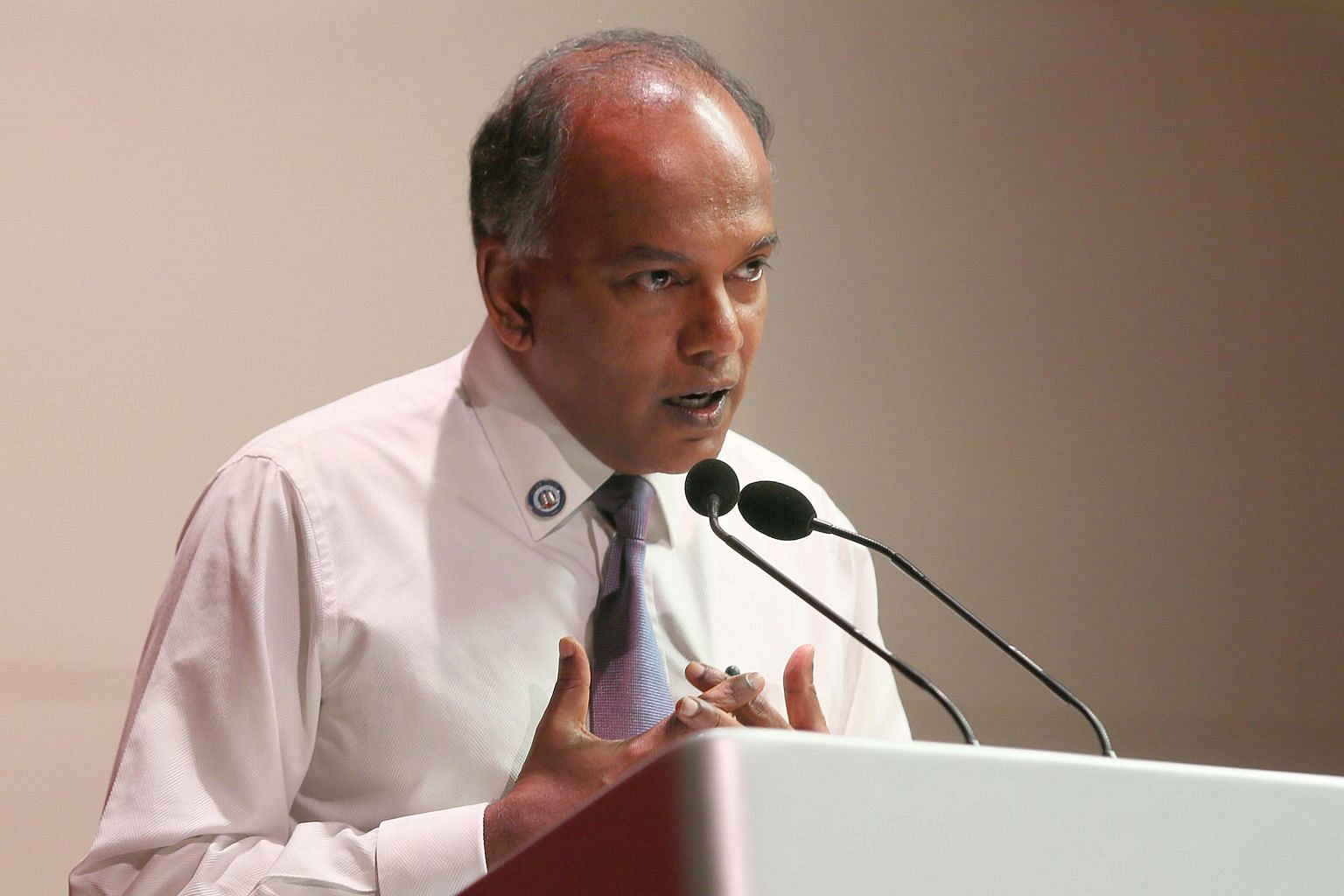Every student is a soldier in the fight against religious extremism: Shanmugam
Sign up now: Get ST's newsletters delivered to your inbox

Law and Home Affairs Minister K Shanmugam urged students to fight against extremism online by actively learning about religion through established sources.
PHOTO: ST FILE
SINGAPORE - Even though Singapore has different religions, different races and different languages, its people respect each other while making sure there is common space for everyone.
Law and Home Affairs Minister K. Shanmugam said this to about 300 Institute of Technical Education (ITE) students at a forum on the dangers of extremism on Saturday (Aug 11).
He noted 20 people have been arrested since 2015, while there were 11 arrests from 2007 to 2014.
"Of this 20, 18 were radicalised online, so that shows you how important it is to make sure your online space is okay," he said.
"The other thing that is worrying is, in the past, it took about two years for people to get radicalised. But now, sometimes it is two months, three months... Sometimes, internationally, it has even been three to four days."
Mr Shanmugam urged the audience to fight extremism online by actively learning about religion through established sources for a start and, secondly, to teach their friends and family about the positive messages of Islam: universal brotherhood and sisterhood, friendship, and working and living together in a common spirit.
"Each one of you has to look at yourself as a soldier, fighting for the cause of your religion, helping to put out the true faith, and helping your friends and country," he said.
The Straits Times understands this increase was largely due to the rise of the Islamic State in Iraq and Syria (ISIS) network from 2014.
"We have the situation relatively under control, but neither you nor I can say we've won against radicalisation. And we have to be on guard - and we have to fight back," Mr Shanmugam added.
Saturday's forum - Dangers of Extremism in the Cyber World: Building Resilience in Youth - was held at the ITE College Central.
It is organised annually by the Inter-Agency Aftercare Group, a voluntary care group. It covers radicalism issues and targets different groups of young people each year.
The forum had representatives from social media giant Facebook and charity Touch Cyber Wellness discussing topics such as identifying fake news and the role of social media in spreading extremism.
The students also took part in a closed-door dialogue with Mr Shanmugam and Senior Parliamentary Secretary for Home Affairs and Health Amrin Amin on Singapore's security situation.
In Mr Shanmugam's opening address, he also talked about the terrorism risks in the region.
"In Singapore we haven't had an attack, not because the terrorists don't want to but so far it's been difficult for them," he said.
"The fact you don't worry about suicide bombers is not because they don't want to come but, so far, because the Government, the public, and the security forces have worked together to keep them out."
Mr Muhammad Faizal Abdul Rahman from the S. Rajaratnam School of International Studies' Centre of Excellence for National Security told The Straits Times that online radicalisation facilitates extremism, both religiously and non-religiously motivated.
"Hence, counter-radicalisation will always be a work in progress especially for highly globalised and multicultural societies such as Singapore," he said
Besides improving online algorithms and improving people's digital literacy, he said: "We need to delegitimise extremist ideas by showing how Singaporean values are more humane and just."


